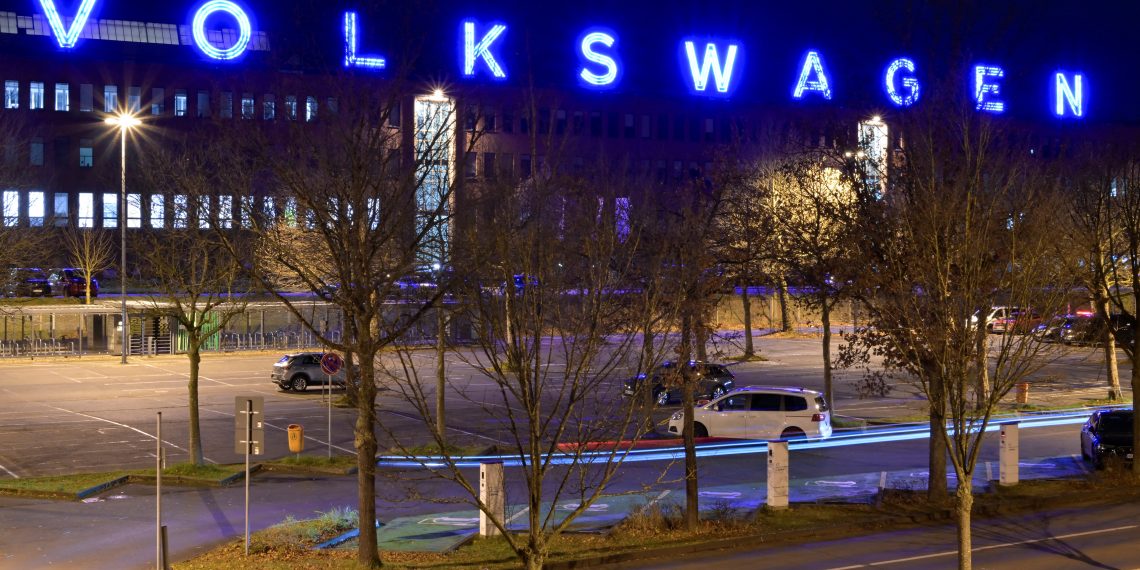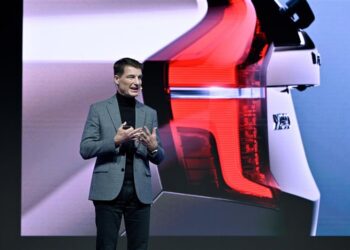In a decision that could redefine the auto industry, Volkswagen (VW) and Germany’s powerful IG Metall union have clinched a monumental agreement, one that spares the automaker’s plants from closure but slashes its workforce by 35,000 positions by 2030. The deal, hailed by union leaders as a “Christmas miracle,” is a stark but necessary maneuver to secure the future of Europe’s largest car manufacturer in an era of seismic industry shifts.
The job cuts, set to be achieved through early retirements and voluntary redundancies, mark one of the largest workforce reductions in VW’s storied history. The company is grappling with intensified competition from Chinese automakers and the growing pains of transitioning to electric vehicles (EVs) amidst Europe’s cooling demand for traditional cars. Yet, the agreement comes with a silver lining: not a single plant will be shuttered.
A Billion-Euro Strategy to Save a Legacy
The cuts are part of an ambitious cost-saving initiative projected to yield €15 billion in annual savings by the mid-2030s. Volkswagen has committed to reinvesting these savings into cutting-edge EV technologies, autonomous driving, and sustainable mobility solutions, ensuring it remains a heavyweight in the global automotive arena.
VW also plans to reduce its production capacity in Germany by approximately 734,000 vehicles, reflecting the automaker’s pivot toward more agile, efficient production systems. These adjustments align with the company’s focus on achieving profitability while meeting the European Union’s stringent climate goals.
A Paycheck Sacrifice at the Top
In a move that underscores the shared sacrifice, Volkswagen’s management is not immune to the financial tightening. Nearly 4,000 senior managers will face immediate cuts to their bonuses, starting with a 10% reduction over the next two years. This will be followed by successive salary decreases of 8%, 6%, and 5% in the years to come—a clear signal that everyone, from the factory floor to the boardroom, must shoulder the burden of VW’s transformation.
Union Leaders Secure a Hard-Fought Victory
For IG Metall, this deal represents a bittersweet triumph. While the loss of jobs is sobering, the union successfully shielded its members from forced layoffs or abrupt plant closures—a significant achievement in an era when automakers worldwide are opting for sweeping shutdowns. “This agreement secures jobs, families, and the pride of our workers,” said one union representative. “It’s a socially responsible solution for an industry facing existential challenges.”
Investor Jitters Amid Optimism
Volkswagen’s shareholders, however, remain wary. The company’s stock showed signs of volatility in the wake of the announcement, reflecting market apprehension over the scale of the cuts and their potential impact on productivity. Yet industry analysts are cautiously optimistic, lauding the company for addressing structural inefficiencies while positioning itself as a leader in sustainable mobility.
The Road Ahead: A Balancing Act
Volkswagen now faces the daunting task of balancing its cost-cutting measures with its ambitious vision for the future. The automotive giant is doubling down on its commitment to innovation, with plans to roll out a new generation of EVs that rival Tesla and dominate global markets.
For workers, the agreement is a bittersweet Christmas gift. It provides job security for those who remain while acknowledging the sacrifices of the thousands who will leave. For the broader auto industry, it’s a harbinger of change—a stark reminder that adaptability and resilience are the keys to survival in an ever-evolving landscape.
As VW charts its course through uncharted waters, this agreement signals not just a compromise, but a bold recalibration of what it means to be an automotive powerhouse in the 21st century. Will the gamble pay off? Only time will tell. For now, the industry watches as a 35,000-strong workforce prepares for its next chapter—and Volkswagen braces itself for the drive of its life.









